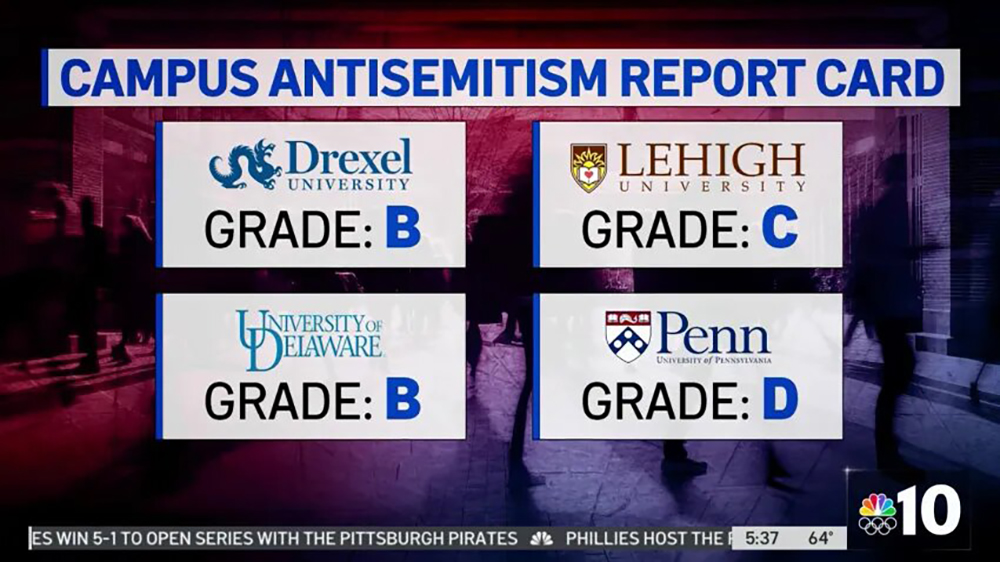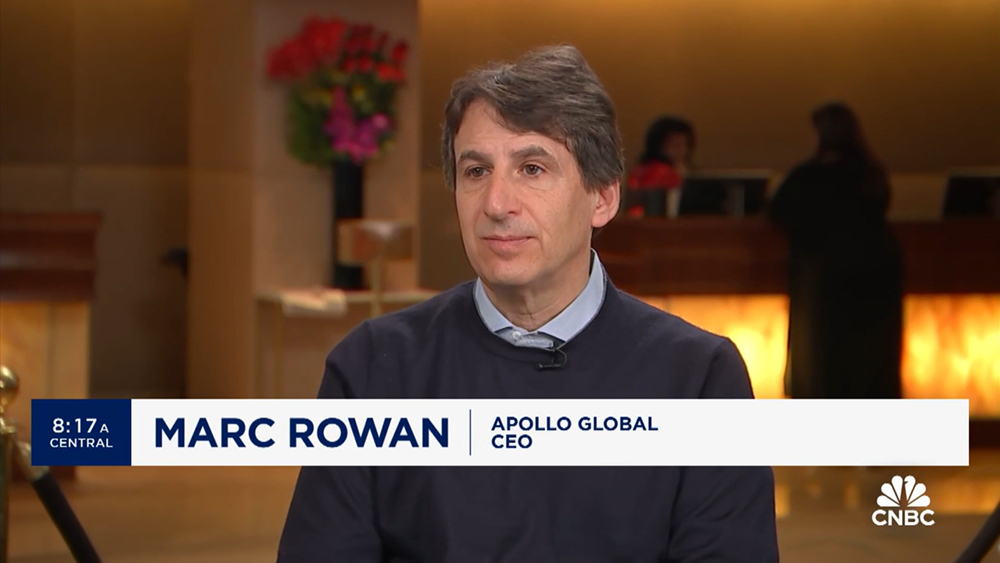|
Getting your Trinity Audio player ready...
|
Edited by: Fern Sidman
David Magerman, a philanthropist and venture capitalist, has redirected millions of dollars in donations from his alma mater, the University of Pennsylvania (UPenn), to several universities in Israel. His decision comes after what he describes as UPenn’s failure to adequately address the growing issue of anti-Semitism on campus, particularly in the wake of the October 7 Hamas attack on Israel. According to a report on the Fox News web site, Magerman has committed $5 million in total to Israeli universities, allocating $1 million in grants to five different institutions, including Tel Aviv University, Technion-Israel Institute of Technology, Bar-Ilan University, and the Jerusalem College of Technology.
Magerman, who had donated roughly $10 million to UPenn over the years, explained that his decision was influenced by the anti-Israel protests and anti-Semitic sentiments that have become increasingly visible on U.S. college campuses. “I don’t see much value generated by giving to American universities,” Magerman told Fox News Digital. He added that he believes American liberal arts colleges are “flawed institutions” that fail to properly prepare students for the real world, especially in their handling of issues related to Israel and anti-Semitism.

Magerman’s donations are aimed at supporting programs in Israel that will help Jewish-American students integrate into the country’s academic and scientific sectors. The grants will fund programs for English-speaking students to learn academic Hebrew and pursue STEM (Science, Technology, Engineering, and Mathematics) degrees. By providing these resources, Magerman hopes to offer an alternative for Jewish-American students who are disillusioned with U.S. campuses due to rising anti-Semitism. “My plan is to redirect my philanthropic efforts going forward largely to Israel,” he told Fox News.
His goal is to create more options for students who are considering moving to Israel as a result of the hostile atmosphere on U.S. college campuses. Magerman emphasized that he wants to support institutions that provide meaningful opportunities for students, particularly in fields such as science and technology, without being tainted by ideological biases he sees at many American universities.
Magerman has been outspoken about his concerns regarding Ivy League schools, urging other Jewish philanthropists to reconsider their financial support for these institutions. “Stop,” Magerman said bluntly when asked what message he has for fellow Jewish donors still contributing to elite U.S. universities. He believes that it is naive to think these schools can be reformed. According to the report on Fox News, Magerman accused Ivy League universities of actively promoting an agenda that questions the values of Western civilization, the Founding Fathers, and the very foundations of Western society.
“They’re fulfilling the mission they want to fulfill,” he explained to Fox News, noting that these institutions appear focused on indoctrinating students rather than fostering a balanced and open dialogue. Magerman argues that this ideological shift should be a wake-up call for donors who may not be fully aware of what their financial contributions are supporting.

While Magerman has chosen to divest from U.S. universities, he does not discourage Jewish students from applying to prestigious Ivy League schools if it aligns with their academic and career goals. “If their best outcome is by going to Columbia, or Penn, or Harvard, they shouldn’t let anti-Semites stop them,” Magerman said, according to Fox News. He advises students to pursue the best educational opportunities available to them but acknowledges the challenges Jewish students may face in navigating increasingly hostile campus environments.
As such, Magerman encouraged Jewish students to critically assess whether attending Ivy League schools is truly in their best interest, given the hostile environment they may face. “I think they should re-evaluate whether that’s the best place for them to learn… whether I would be well served going to an institution where clearly the administration, in large part the faculty and in large part the student body, don’t want me there,” Magerman told Fox News Digital. He questioned the value of subjecting oneself to such an environment merely for the prestige of an Ivy League degree, noting that similar academic programs can be pursued at other universities or even online.
Magerman’s concerns are not only about the safety and well-being of Jewish students but also about the changing perceptions of Ivy League institutions among employers. According to the Fox News report, Magerman observed that many employers and company executives are now placing less emphasis on hiring Ivy League graduates than they did in the past. “I think their eyes have been opened to the mentality of some of the graduates of these schools and what they’ve been learning,” he said. This shift suggests that the reputation of elite universities is increasingly being questioned, particularly as their campuses become sites of divisive and controversial protests.
The growing discomfort among Jewish students at Ivy League schools has been widely reported. One UPenn student told FOX 29 in December that Jewish fraternity members “don’t even feel comfortable walking outside our house wearing their kippahs just because they don’t know if they’re going to be harassed.” Another student shared that her friends had collectively decided not to apply to UPenn over concerns about facing hostility due to their Jewish identity. These personal accounts reflect a broader trend of Jewish students feeling unsafe or unwelcome at prestigious institutions.
Magerman’s decision to cut ties with UPenn was not made lightly. In a letter to the university, dated October 15, 2023, just days after the Hamas attacks, Magerman expressed his disappointment in the university’s response to the rising anti-Semitism on campus. “You have shown me who you are. My only remaining hope is that all self-respecting Jews, and all moral citizens of the world, dissociate themselves from Penn,” he wrote. Fox News reported that Magerman, once a proud donor, now feels “ashamed” to be associated with the institution.

Magerman is not alone in his actions. Other prominent donors have followed suit in response to UPenn’s handling of anti-Semitic incidents. The Fox News report indicated that Marc Rowan, CEO of Apollo Global Management and a major donor who gave $50 million to UPenn in 2018, also urged Jewish donors to “close their checkbooks.” In an effort to spark change at the university, Rowan called on other donors to send symbolic $1 checks, hoping that this collective action would pressure the administration to address the growing concerns of Jewish students and supporters. As anti-Israel protests and encampments continued to emerge at major universities, this movement to withdraw financial support gained traction.
Ross Stevens, the founder and CEO of Stone Ridge Asset Management, became the latest major donor to sever ties with the University of Pennsylvania (UPenn) over the institution’s handling of rising anti-Semitism on campus. Stevens, who had pledged an estimated $100 million donation, withdrew his financial support, citing the university’s “permissive approach to hate speech calling for violence against Jews” and its lack of action in protecting Jewish students. According to the report on Fox News, Stevens wrote in a letter that the university’s failure to address harassment and discrimination against Jewish students violated basic rules and policies that prohibit such behavior based on religion.
Stevens’ decision followed a wave of donor withdrawals, many of which were sparked by the university’s hosting of a Palestinian literary festival that included speakers with a history of making anti-Semitic comments. Some speakers had called for “death to Israel,” which further inflamed tensions on campus. As Fox News reported, many donors became outraged when the university did not take immediate action to condemn Hamas’s violent attack on Israel on October 7, 2023, or sufficiently address anti-Israel protests that some believed blurred the line between free speech and anti-Semitism.
The backlash from major donors, including Stevens, eventually led to the resignation of UPenn President Liz Magill. Magill had faced intense pressure not only over the university’s response to anti-Semitism but also for her testimony before the House Education and Workforce Committee the previous year. According to the Fox News report, Magill’s refusal to explicitly state that anti-Semitic chants and calls for genocide against Jews violated UPenn’s code of conduct was met with widespread criticism.
Her resignation marked a turning point in the university’s ongoing crisis, as UPenn struggled to balance free speech on campus with the need to address the rising concerns of Jewish students and donors. The university’s failure to take a firm stand, in the eyes of many, exacerbated tensions and led to a significant financial blow from the withdrawal of donations.
Magerman’s public stance against UPenn is emblematic of a broader dilemma facing Jewish students across U.S. campuses. As anti-Israel protests have gained momentum at several major universities, Jewish students have increasingly found themselves the targets of hostility, Fox News reported. Magerman’s message to these students is twofold: while they should not let anti-Semitism prevent them from pursuing the best possible education, they should also consider whether attending a university where they feel unwelcome is truly worth the prestige.
Magerman’s decision to shift his philanthropic focus toward Israeli universities highlights an alternative path for Jewish students seeking a supportive academic environment. By supporting programs for English-speaking students in Israel, Magerman hopes to create more opportunities for those considering studying abroad, free from the hostility that has permeated many U.S. campuses.
Despite the mounting pressure and financial fallout, UPenn has remained largely silent. According to Fox News, the university did not respond to requests for comment regarding Stevens’ withdrawal of his $100 million donation. This lack of response has further fueled criticism that the university is not doing enough to address the concerns of its Jewish community and donors.
As the controversy surrounding UPenn and other universities continues to unfold, the implications for future donations and university policies remain uncertain.





